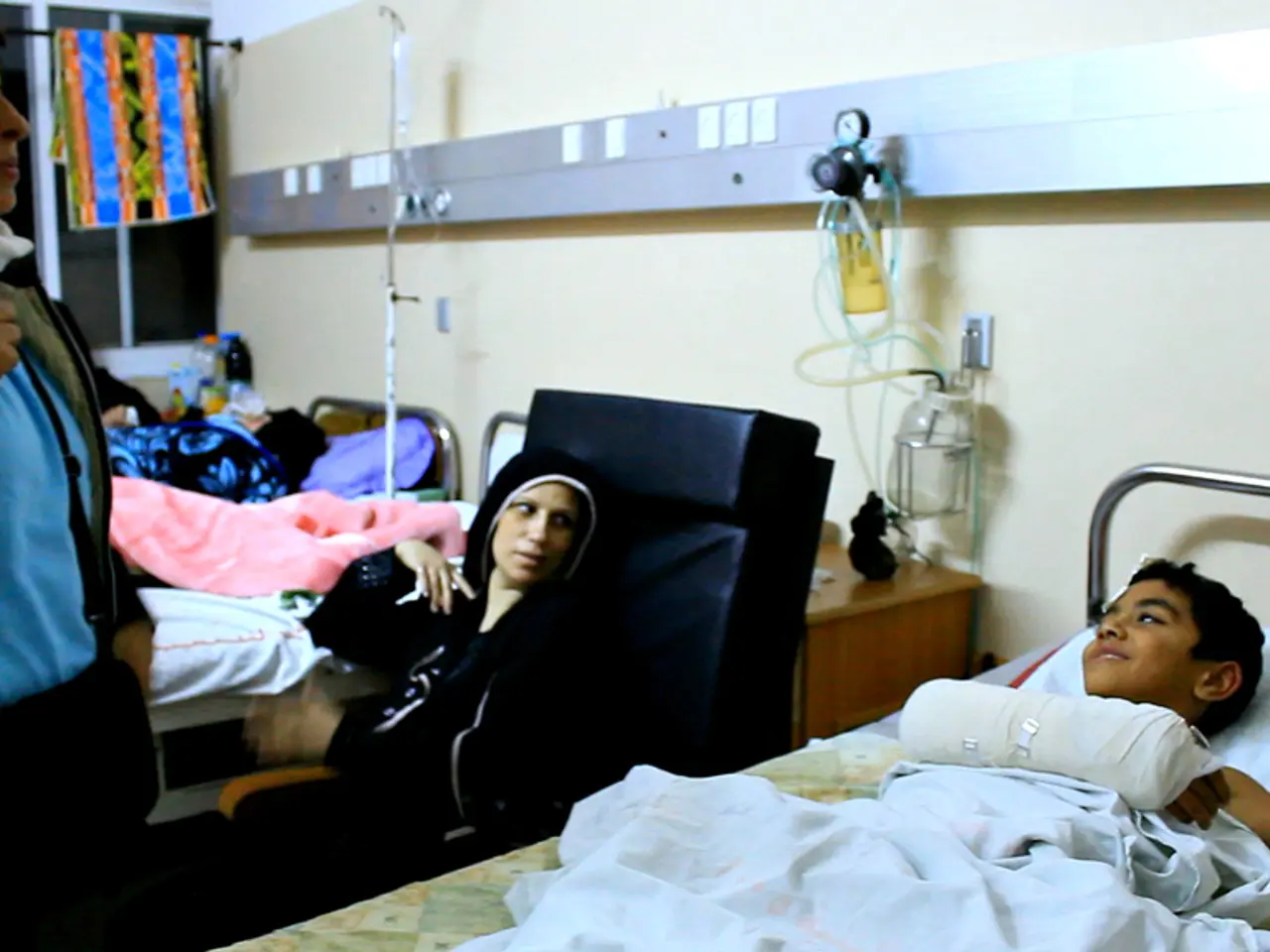Coordinated Medical Aid Bundles
In a significant move towards improving public health, the government of Kazakhstan has updated its mandatory social medical insurance law to ensure that screening examinations for common socially significant diseases are accessible to all citizens, regardless of their insurance status.
This new policy, effective immediately, means that preventive screenings, including new ones for early detection of cancer, cardiovascular diseases, and acute cerebrovascular disorders (specifically for men over 50), are available to everyone, insured or not.
The law also introduces a mechanism where local executive bodies will pay insurance contributions for socially vulnerable and uninsured citizens. This initiative is expected to expand coverage by more than 1 million people by 2026, helping maximise public participation in the compulsory social medical insurance system and ensuring more comprehensive access to medical care.
Uninsured individuals in Kazakhstan, who have not undergone preventive examinations, including screenings, for years, can now seek medical help proactively. Screening examinations, a set of medical tests performed on individuals without clinical symptoms or complaints, are conducted in organisations providing outpatient clinic services, across six categories for the early detection of various diseases.
The priority remains the maximum coverage of the population with compulsory social health insurance, regardless of social status. The screenings are aimed at the early detection of arterial hypertension, ischemic heart disease, diabetes, glaucoma, and oncological screenings.
Cancer screenings, including for cervical, breast, and colorectal cancer, will become free for all citizens in Kazakhstan from the second half of 2025, regardless of their insurance status in the OMS system. This move is expected to help detect diseases at an early stage and improve treatment outcomes.
It is worth noting that many patients in relatively young age groups suffer from arterial hypertension, which is often detected through screening, indicating they were unaware of their condition. The amendment to the law on conducting screenings for uninsured individuals aims to ensure the coverage of vulnerable populations, including the unemployed, among whom disease rates are rising.
Approximately 3.3 million people in Kazakhstan remain uninsured, including the unemployed and those in crisis or emergency-level well-being. Separate screening and examination rooms operate in clinics for conducting these screenings, ensuring privacy and comfort for all patients.
This initiative is a step forward in Kazakhstan's commitment to ensuring equal access to healthcare for all its citizens, regardless of their social status or insurance coverage.
- Science has a significant role to play in the early detection and treatment of chronic diseases like cancer, cardiovascular diseases, and acute cerebrovascular disorders.
- The workplace-wellness industry is expected to flourish with an increased focus on preventive screenings and medical-conditions management.
- In Kazakhstan, respiratory conditions and digestive health issues are becoming a concern, necessitating urgent attention in environmental-science research.
- Eye-health screening is crucial for early detection of conditions like glaucoma, which can lead to blindness if left untreated.
- Hearing tests are essential, as untreated hearing loss can lead to mental-health issues and other complications.
- Health-and-wellness programs in Kazakhstan should also include fitness-and-exercise, sexual-health education, and autoimmune-disorders awareness.
- Climate-change is a global issue affecting all aspects of life, including health, and requires immediate action for mitigation and adaptation.
- Alongside physical health, mental-health issues are on the rise, particularly among the younger generation in Kazakhstan.
- Mens-health programs should focus on prostate health, cardiovascular health, and mental-health issues specific to men.
- Skin-care research and therapies are essential for the early detection and treatment of skin-conditions, which can have a significant impact on self-esteem and quality of life.
- Nutrition plays a crucial role in maintaining overall health and well-being, but many Kazakhstanis struggle with weight-management due to unhealthy eating habits.
- As people age, their health needs change; therefore, aging-related health issues must be addressed through appropriate therapies-and-treatments and lifestyle modifications.
- Women's-health programs should focus on reproductive health, breast health, and mental-health issues specific to women.
- Parenting can be challenging, especially when dealing with children's health issues, and support from medical professionals and industry experts is vital.
- The financial industry plays a role in health-and-wellness, as investing in health can lead to long-term savings through reduced medical costs.
- Medicare policies should be reviewed regularly to ensure they cover necessary screenings and treatments for all common diseases.
- CBD oil is being studied as a potential treatment for various medical conditions, including neurological-disorders and chronic diseases.
- Fashion-and-beauty industry trends are influencing skin-care routines, with an increased focus on natural and organic products.
- Lifestyle modifications, such as quitting smoking and reducing alcohol consumption, can significantly improve cardiovascular-health.
- Fitness-and-exercise routines are essential for maintaining cardiovascular-health, bone health, and overall well-being.
- Aging population and advancements in medical technology are driving the growth of the technology industry, particularly in the field of artificial-intelligence and data-and-cloud-computing.
- Relationships are important for mental-health and overall well-being, but online communication through social-media can sometimes have negative effects.
- Pets provide companionship and can improve mental-health, but they also require proper care and attention.
- Traveling to new places can broaden one's perspective, but it can also expose travelers to different diseases and environmental hazards.
- When purchasing a car, safety features like airbags and seat belts are important considerations for health and well-being.
- Reading books can improve mental-health, as it stimulates the brain and facilitates learning.
- Shopping can be therapeutic, but it's essential to practice mindful spending to avoid financial stress and debt.
- The entertainment industry, including movies-and-tv, music, and video games, has a considerable impact on mental-health and well-being.




